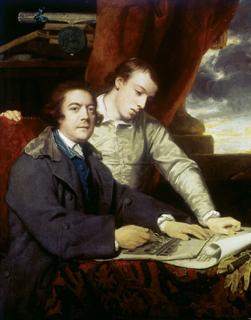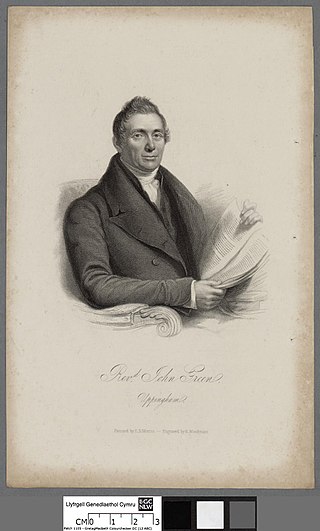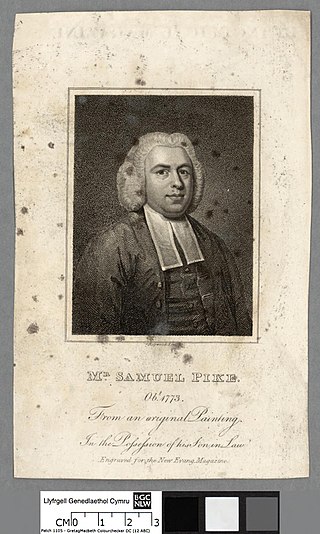Related Research Articles
The Regius Professorships of Divinity are amongst the oldest professorships at the University of Oxford and the University of Cambridge. A third chair existed for a period at Trinity College Dublin.

St Mary Hall was a medieval academic hall of the University of Oxford. It was associated with Oriel College from 1326 to 1545, but functioned independently from 1545 until it was re-incorporated into Oriel College in 1902.

James Paine (1717–1789) was an English architect. He worked on number of country houses such as Chatsworth House, Thorndon Hall and Kedleston Hall.
The Regius Professor of History at the University of Oxford is a long-established professorial position. Holders of the title have often been medieval historians. The first appointment was made in 1724. The term "Regius" reflects the origins of the post as a royal appointment, itself a recognition of the important influence of history.
The Regius Professor of Medicine is an appointment held at the University of Oxford. The chair was founded by Henry VIII of England by 1546, and until the 20th century the title was Regius Professor of Physic. Henry VIII established five Regius Professorships in the University, the others being the Regius chairs of Divinity, Civil Law, Hebrew and Greek. The Regius Professor of Clinical Medicine is always a member of Christ Church.

John Green was an English clergyman and academic. He became the chaplain of Charles Seymour, 6th Duke of Somerset, and Vice-Chancellor of the University of Cambridge.
Events from the year 1764 in Wales.
David Durell D.D. (1728–1775) was Principal of Hertford College, Oxford, from 1757 to 1775, Vice-Chancellor of the University of Oxford from 1765 to 1768, and a noted Old Testament scholar of his day.

Samuel Pike (1717?–1773) was a British clergyman and a member of a religious movement known as Sandemanians.
George Fothergill, DD was a British academic and Anglican priest. He was principal of St Edmund Hall, Oxford between 1751 and 1760.

Richard Myddelton, of Chirk Castle, Denbighshire, was a Welsh landowner and politician.
This article is about the particular significance of the year 1730 to Wales and its people.
Edward Bentham was an Oxford based theologian who in 1763, with some evident reluctance, became Regius Professor of Divinity at Oxford University.
References
- ↑ Robert Thomas Jenkins. "Nowell, Thomas (1730?-1801), principal of S. Mary Hall, Oxford, and Regius professor of history". Dictionary of Welsh Biography . National Library of Wales . Retrieved 5 February 2024.
- J. J. Caudle, Nowell, Thomas (1730?–1801), Oxford Dictionary of National Biography , Oxford University Press, 2004.